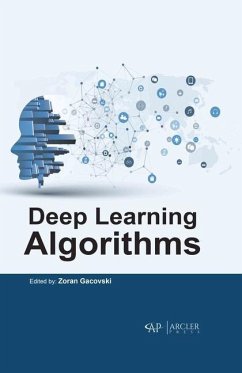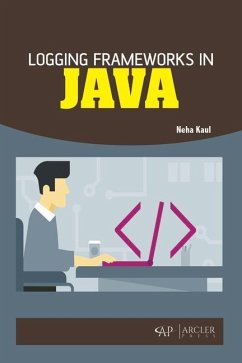
Knowledge Management and Representation
Versandkostenfrei!
Versandfertig in über 4 Wochen
156,99 €
inkl. MwSt.

PAYBACK Punkte
78 °P sammeln!
The knowledge management (KM) process comprises a set of activities for identification, gathering, creation, presentation and distribution of knowledge for the purposes of learning, reuse, and awareness.The knowledge management and representation has gained popularity in the recent years due to the emergence of technologies that enable the flow of knowledge within the organization systems (expert systems, knowledge bases, document management etc.), the emergence of Internet and Internet-based technologies (e-learning, semantic Web, content management, Yellow pages, Wikis, blogs, collaboration ...
The knowledge management (KM) process comprises a set of activities for identification, gathering, creation, presentation and distribution of knowledge for the purposes of learning, reuse, and awareness.The knowledge management and representation has gained popularity in the recent years due to the emergence of technologies that enable the flow of knowledge within the organization systems (expert systems, knowledge bases, document management etc.), the emergence of Internet and Internet-based technologies (e-learning, semantic Web, content management, Yellow pages, Wikis, blogs, collaboration tools etc.), and also due to organizational activities such as communities of practice, systems for training and mentoring, etc.Knowledge is defined as the ability to identify facts, information, and skills achieved through experience and/or education, demonstrating a theoretical and practical understanding of a subject. There are three approaches to knowledge management:1) Techno-centric approach: focuses on technology, and it is convenient when users want to expand the sharing and growth of the knowledge base (enabled by the technology solutions, such as expert systems, neural nets, or the semantic Web);2) Organizational approach: to establish an organization that will allow the process of collection, creation and sharing of knowledge.3) Ecological approach: combines interaction of people, personality, knowledge and environmental factors into one adaptive system.Knowledge management techniques support the strategic goals of business systems in order to share a common intelligence, improve the performance of the business systems, pick strategic assets, and further raise the innovative capacity of the individuals.This edition covers different topics of knowledge management and representation, including methods and approaches for knowledge representation, knowledge management techniques, semantic web technology, and knowledge management applications in business and economy.Section 1 focuses on methods and approaches for knowledge representation, describing general knowledge representation model of concepts, symbolic regression knowledge representation framework, knowledge representation in a proof checker for logic programs, and an innovative approach about the process knowledge representation in the processes of large cluster projects management.Section 2 focuses on knowledge management techniques, describing digestion of knowledge in a KM system to reveal implicit knowledge, management of knowledge acquisition from human sources in innovation transfer, the emergence of ontology in the knowledge management, and three postulates that change knowledge management paradigm.Section 3 focuses on semantic web technologies, describing the semantic web-based collaborative knowledge management, improving engineering data management with semantic web techniques, a state-of-the-art survey on semantic web mining, providing semantic content for the next generation web, and reasoning and representing viewpoints on the semantic web.Section 4 focuses on knowledge management applications in business and economy, describing a knowledge management framework as knowledge bases development support to professional risk assessment in SMEs, a stakeholder model for managing knowledge assets in organizations, performance innovation through applied knowledge management, knowledge-based enterprise framework from a management control view perspective, and knowledge representation formalism for semantic business process management.












